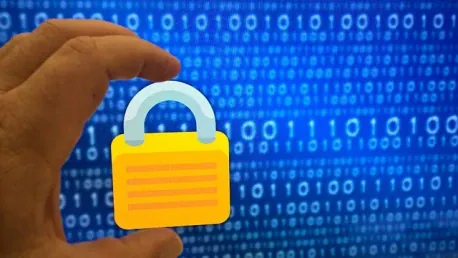President Biden is set to sign an executive order aimed at enhancing the privacy and security of Americans’ digital identities amidst ongoing cyberattacks. This action introduces several initiatives to strengthen federal defenses against cyber threats that jeopardize the privacy of U.S. citizens. The move addresses the increasing cyberattacks from adversarial nations and criminal organizations targeting the U.S. government, corporations, and individuals, causing significant economic damage.
Addressing Existing Vulnerabilities
National Security Council’s Findings
The National Security Council (NSC) highlighted the vulnerabilities in the U.S. digital identity infrastructure, emphasizing that the country faces approximately $56 billion in fraud annually. This staggering figure underscores the urgent need for robust measures to curb such fraudulent activities and protect Americans’ digital identities. By focusing on reducing these vulnerabilities, the new executive order aims to consolidate efforts in safeguarding personal information and mitigating economic losses.
One major component of the executive order is the reduction of the threshold for imposing sanctions on cyber attackers, which is intended to deter hostile activities from countries like China, Russia, and Iran, as well as from ransomware criminals. The lower threshold allows for swifter and more decisive action against individuals or entities involved in cyberattacks, thereby enhancing the country’s cyber defense posture. This step is crucial for demonstrating the U.S. commitment to holding cybercriminals accountable and deterring future threats.
Promoting Private-Sector Technology
The order also aims to accelerate the implementation of private-sector technology within government operations to enhance efficiency and minimize fraud. This includes promoting the use of privacy-preserving digital identity documents, such as mobile driver’s licenses, and launching an early-warning fraud pilot program to alert Americans about potential fraud involving public benefits and payments. Additionally, new requirements will be established for software providers working with the U.S. government to ensure stronger security measures. The adoption of robust private-sector technology is pivotal in creating a resilient digital infrastructure capable of withstanding sophisticated cyber threats.
Recent Cyber Intrusions and Preventive Measures
Cybersecurity Breaches
The signing of this executive order follows a recent cyber intrusion where Chinese state-sponsored actors breached the Treasury Department’s systems through a third-party software provider. Building on Biden’s previous cyber executive order, which mandated federal agencies to adopt new security practices, the new order advances these efforts by promoting the use of phishing-resistant modern technologies within federal agencies and enhancing the visibility of cyberattack activities across government agencies through the Cybersecurity and Infrastructure Agency (CISA). This enhanced visibility is vital in detecting, responding to, and mitigating the impact of cyberattacks promptly.
Additionally, the order emphasizes the importance of artificial intelligence (AI) and post-quantum technologies in cybersecurity, encouraging further research and development of AI-based security tools. This aspect aligns with a national security memorandum issued by Biden in October, which urged the adoption of advanced AI systems to bolster national security. The integration of post-quantum technologies is particularly crucial as quantum computing poses potential risks to current encryption methods, necessitating the development of new encryption standards that can withstand quantum attacks.
Protection of Space-Based Systems
Furthermore, the order addresses the protection of space-based systems, citing the example of Russia’s attack on Ukraine’s military satellite communications system in 2022. The U.S. has experienced numerous cyberattacks from foreign adversaries, including the substantial “Salt Typhoon” operation where China-backed actors breached several U.S. telecom firms, highlighting the country’s need for robust cyber defense capabilities. Protecting space-based systems is essential due to their critical role in national security, communications, and various commercial applications. Strengthening the cybersecurity of satellite systems ensures the integrity and reliability of these vital assets.
Political Implications and Future Prospects
Administration’s Commitment
As Biden’s administration nears its end, it remains uncertain whether the incoming administration under President-elect Trump will retain or repeal this executive order. This measure underscores the current administration’s commitment to strengthening national cybersecurity and protecting Americans’ digital privacy. The continuation or reversal of these policies will significantly influence the future landscape of national cybersecurity and the U.S.’ ability to counteract emerging digital threats effectively. Sustained efforts toward enhanced cybersecurity are essential to maintaining a robust defense against the evolving threat landscape.
Comprehensive Strategy
President Biden is preparing to sign an executive order focused on boosting the privacy and security of Americans’ digital identities in the face of persistent cyberattacks. This effort introduces a series of initiatives designed to enhance federal defenses against cyber threats that compromise the privacy and security of U.S. citizens. The order comes in response to a surge in cyberattacks originating from hostile nations and criminal organizations, which have been targeting U.S. government agencies, private companies, and individual citizens, leading to significant economic repercussions. The executive order highlights the administration’s commitment to fortifying the nation’s cybersecurity infrastructure and protecting sensitive information from being exploited by malicious actors. Additionally, the initiative aims to promote cooperation between public and private sectors to develop more robust cybersecurity standards and practices. By doing so, the administration hopes to create a more secure digital environment for all Americans, ensuring that their personal and financial information is better safeguarded against evolving cyber threats.









